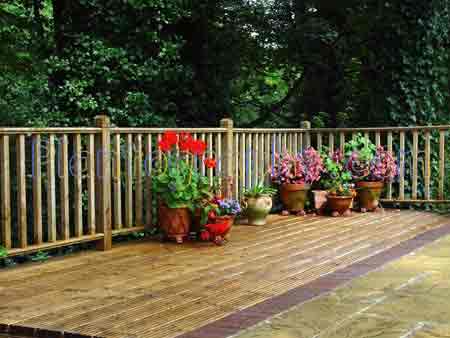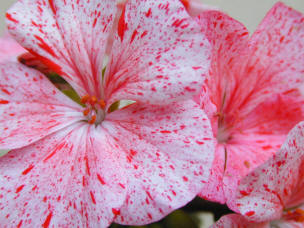Gardening Terms Explained
Pricking out - Transplanting small seedlings into larger trays or containers
Potting on - Placing a plant into a larger pot to promote growth etc
Damping Down - On hot days in greenhouse, Spray benches and floor with water. Increases humidity and lowers the temperature
-
Pruning - Reducing the
growth on a shrub/tree to promote new flowers, stems or foliage.
Also for cosmetic reasons.
Cutting back - Similar to pruning! But normally done to gain space. Pruning is better!!
(Not yet finished - all descriptions will appear shortly)
Dead-Heading - Removing the old and faded flowers often promotes a longer flowering season/new flowers etc.
Disbudding - Removing side buds normally on Chrysanthemums and Dahlias etc to ensure the all growth resources go into making a large main flower.
- Pest - An insect such as an aphid (Greenfly. Blackfly) Red Spider, Caterpillars, Slugs etc. that can be killed with an insecticide. (Cats and dogs do not come into this category!)
- Disease - (Not an insect: doesn't have legs!) - Fungus or Virus infection. Mildew, Damping off, Black Spot, Rust,
- Insecticide - Kills Pests - Not diseases. Usually applied as a spray or sometimes as a dust
Compost - A widely term for all manner of things! The original compost, was the stuff that was stuck in a corner of the garden to rot down! We now like to call that the compost heap. Household and other organic waste is placed layer on layer - sometimes with an chemical accelerator (!) to give a lovely rich 'compost' suitable for either digging into the garden, or spreading round shrubs etc as a mulch. Thus is NOT the compost, sold for potting.
Potting Compost - is sold in bags
for potting up plants or for sowing seeds. You can also
get specialised Potting composts for all manner of plants!
(Hanging Basket, Acid-Loving, Multi-Purpose, John Innes,
and all the rest of it.)
Most modern potting composts are based upon peat (like it
or not) with chemical and/or organic fertilisers added.
There are other types which don't use peat. (Most
professional growers use peat-based composts!) The John
Innes composts are (should be) based mainly upon top
soil/loam with a little peat and sand added, together with
some basic fertilisers. Composted bark, Composted
Farm-Yard Manure and composted anything else, should mean
that the product has been composted - rotted - to where it
is beneficial (!) to plant growth.
Organic - Varied explanations for this. An organic fertiliser is basically made from something that was alive and is now - to all intents and purposes - Dead! For instance, Bonemeal, Dried Blood, Fish-Blood & Bone. Manure (Was once a live plant - or even animal!!) Organic Bug Killers and Pest controls are based upon 'natural' derivatives. Pyrethrum - an insecticide - started life as one of the chrysanthemum family. Organic gardening, is a form of gardening that uses all of the above and more, but does NOT use any synthetic materials - in theory! Therefore if you do NOTHING to your garden, you can claim to be an Organic Gardener (Takes tongue out of cheek now.)
Inorganic or Synthetic - Something man-made! Most sprays on the garden centre shelf are man-made sprays - after years of research.
- Perennial - A plant that lives for many years. tender perennials need protection in winter; Hardy perennials can stay outside all year round. Most Hardy Perennials die down to ground level in winter, and sprout forth in the spring.
- Biennial - A Plant that normally lives for two years, then dies (On purpose!). Seed is sown in Year 1 and the flowers appear in Year 2. For instance, Foxgloves, Forget-me-nots etc usually seed themselves in the soil right after flowering - if you allow them to! - , then grow as small plants until the autumn, over-winter, and flower in the next year. Once a Biennial flowers and seeds itself, the plant dies - leaving the new seedlings to carry on the good work
Annual - A plant that lives for one year (On purpose!) An annual, is sown ,grown, and flowers all in the same year. Then dies after flowering. Marigolds for instance, are sown as seed in March/April, grow into little plants and May/June, flower from June-September, then die! Many other plants die after one year, such as Fuchsias and geraniums. These are actually tender perennials, and if cared for through the winter, will live for many years.
- Herb - One of a range of plants associated with cooking, medicinal healing - or sometimes illegal killing! (Agatha Christie fans will be aware!) NOT ALL herbs are for the POT!!! I once found a Foxglove (Digitalis herb) being sold in the culinary herb section of a well known garden centre. Digitalin - from a foxglove - can be lethal. The garden centre assistant, thought he would add a bit of interest to the herb section, by topping it up from the perennials!
- Herbaceous - Nothing to do with herbs! Simply plants that die down in winter, to sprout forth the following spring. You will gather from this, that a Herbaceous Border will look pretty awful in winter, but, come the spring....!
Evergreen - A plant that keeps its leaves through the winter. The leaves are usually leathery, glossy to varying degrees. Most houseplants are also evergreens! Some perennials are also evergreen, but not the herbaceous ones!
Deciduous - A plant that loses its leaves in the autumn - ready to have a rest throughout the winter! The leaves then reappear the following spring - all being well!
PH - Is a scale used to denote the acidity or alkalinity (lime content) of a garden soil or growing compost. 6.5ph is considered to be 'neutral' and supports most plant life. A ph level of 6 is on the acid side and will be a good home to members of the Rhododendron family (Heathers, Camellias, Pieris, Kalmia etc etc etc) As the ph level gets higher, then the range of plants which can be grown reduces quite dramatically. Members of the cabbage (Brassica) family are quite happy at the higher levels (Wallflowers, cabbage, sprouts, etc etc)
Mono Culture - Some people are nuts about one particular type of plant; Roses, Chrysanthemums, Dahlias, Cacti etc' and grow nowt else! This is mono culture. Fruit farmers can also be said to be practicing 'Mono Culture'
Acid Soil - A soil lacking in lime (Not necessarily a bad thing) and below the PH level of 6.5. Such soils can be adjusted with dressings of lime - IF required.
Limy Soil - A soil with traces of calcium/lime. difficult to adjust in the long term. Grow plants that do not need acid conditions.
- NPK - N= Nitrogen P=Phosphorous and K=Potash The three main food elements necessary for plant life. Basically, Nitrogen is required for foliage and growth, whilst Phosphorous and Potash are required for Flowers and Roots
Ring Culture
Hardy
Hardy annual
Half Hardy
Tender
Tender annual
Clay soil
Best Selling Gardening Products
Popular Gardening Sections
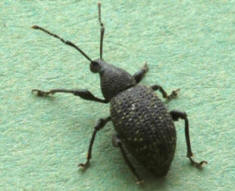
Problems
Identify Weeds in The Garden - How to deal with weeds. Diseases and Pest which harm your garden and plants, learn how to prevent, deter and erradicate your garden problems.
Garden Problems
Pruning
Pruning Guide. Shrubs flower better with correct pruning. Many illustrations and examples of what to do - and when. Includes evergreens, roses, flowering shrubs, spring flowering shrubs and pruning for stem effect. This is our most viewed and comprehensive section,
Pruning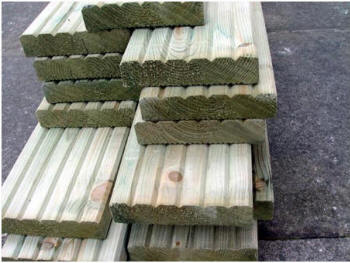
Gardening Businesses
Gardening Businesses listed in the UK counties and USA states. County and State Listings of businesses involved in Garden supplies and services. If you wish to be added to the Directory, please send us your information. Having problems, use the search box
Businesses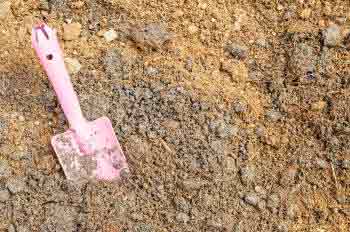
Gardening
In this section you will learn about Gardening Basics, Containers, Landscaping, Propagation and Soil.
Gardening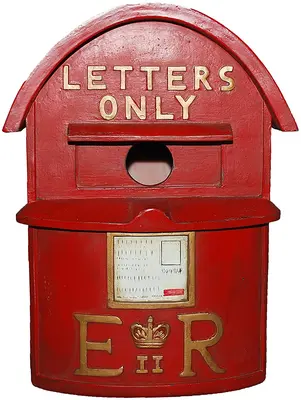
Gardening Gifts
Gardening Gifts and Reviews, Read Before you Buy
- Gardening Gifts Ideas
- Gifts For Her
- Gifts For Men
- Power Tool Gifts
- Cheap Gifts
- Personalised Gifts
- Wildlife Gifts
- Family Gifts

